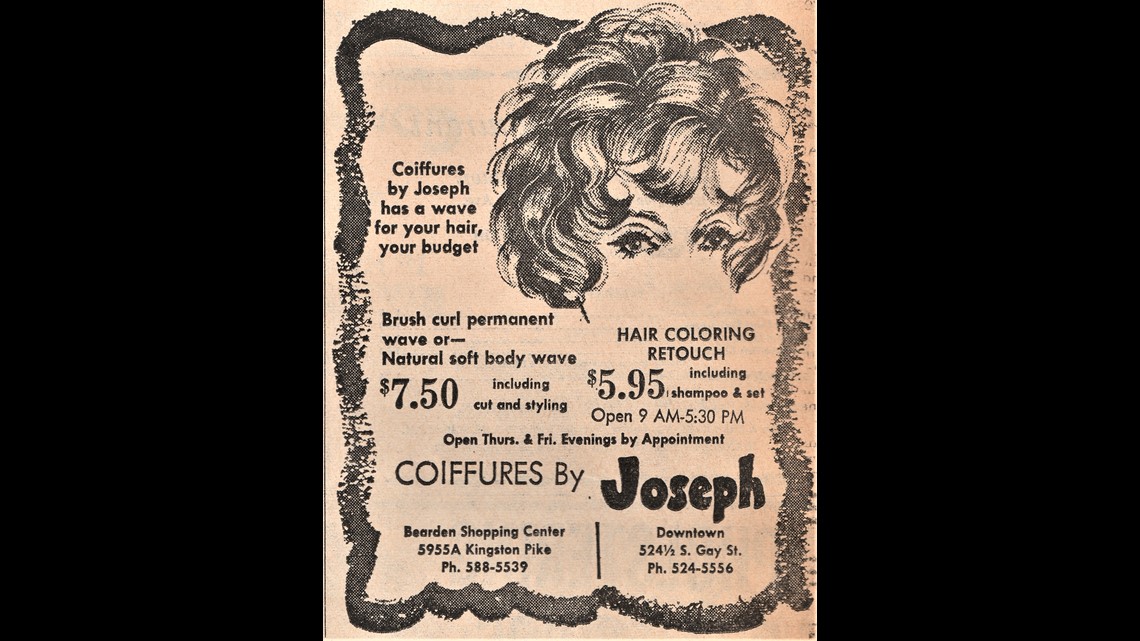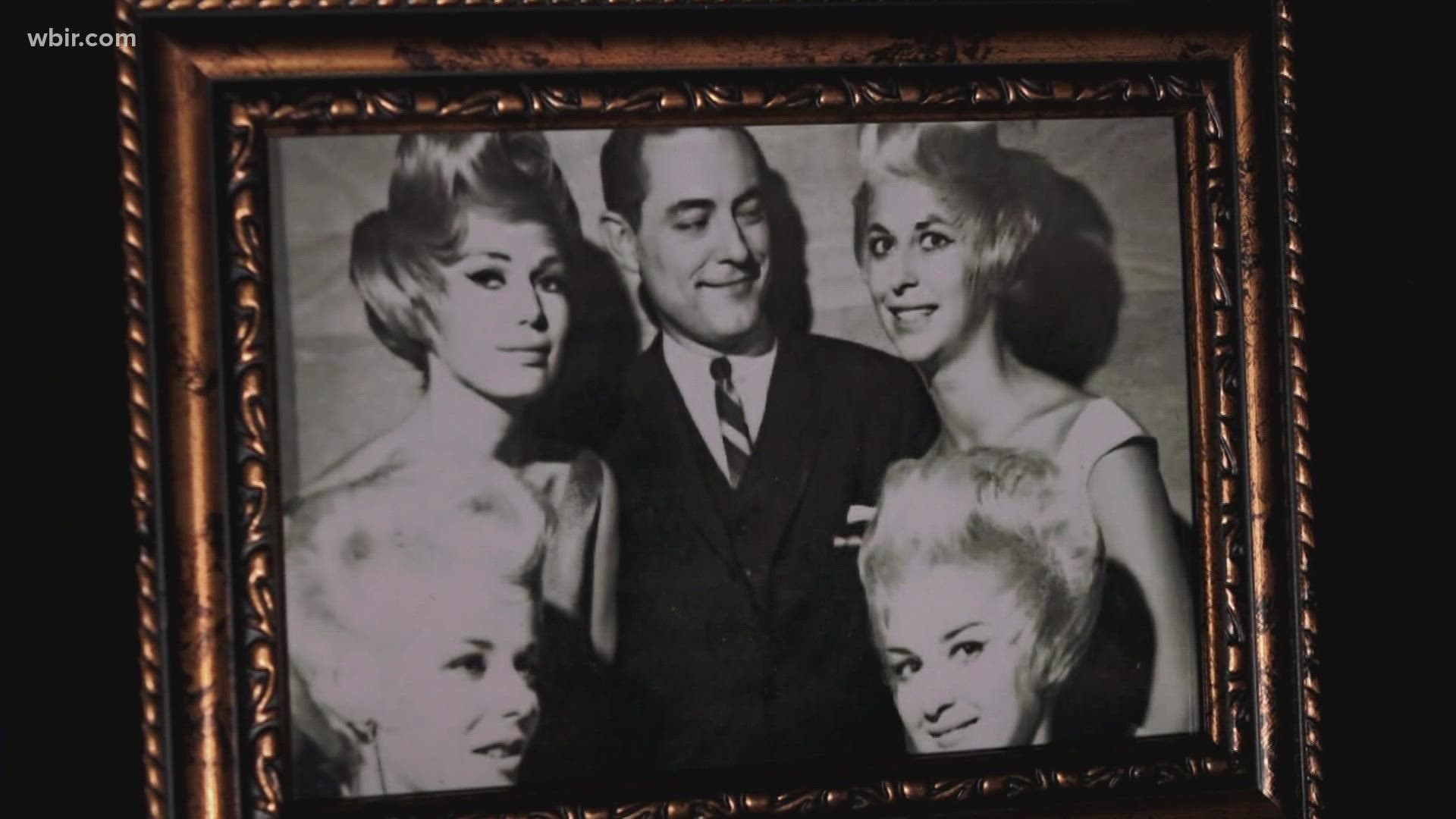KNOXVILLE, Tenn. — Everyone knew where to go if you wanted to look pretty in Knoxville. You made an appointment with Mr. Joseph.
And on the last night of Joseph Weir's life in November 1983, someone else knew where to go to get money -- fast.
Attackers targeted the 59-year-old retired cosmetologist in his tidy Twining Drive home. It's likely at least two people were involved, stabbing the Knoxville businessman with increasing violence --- thrusting the blade once against his skull and repeatedly into his neck -- as he put up a fight.
First upstairs and then down they struggled until finally Weir and his killers ended up out back. By then, Mr. Joseph's life was at its end.
His attackers dragged his body to the edge of the yard and tossed branches on top of it. They grabbed his wallet, cash and checks, jumped in his 1974 Cadillac and drove into the night, having just murdered a man known internationally for making women look beautiful.
Decades later, Weir's killing is unsolved.

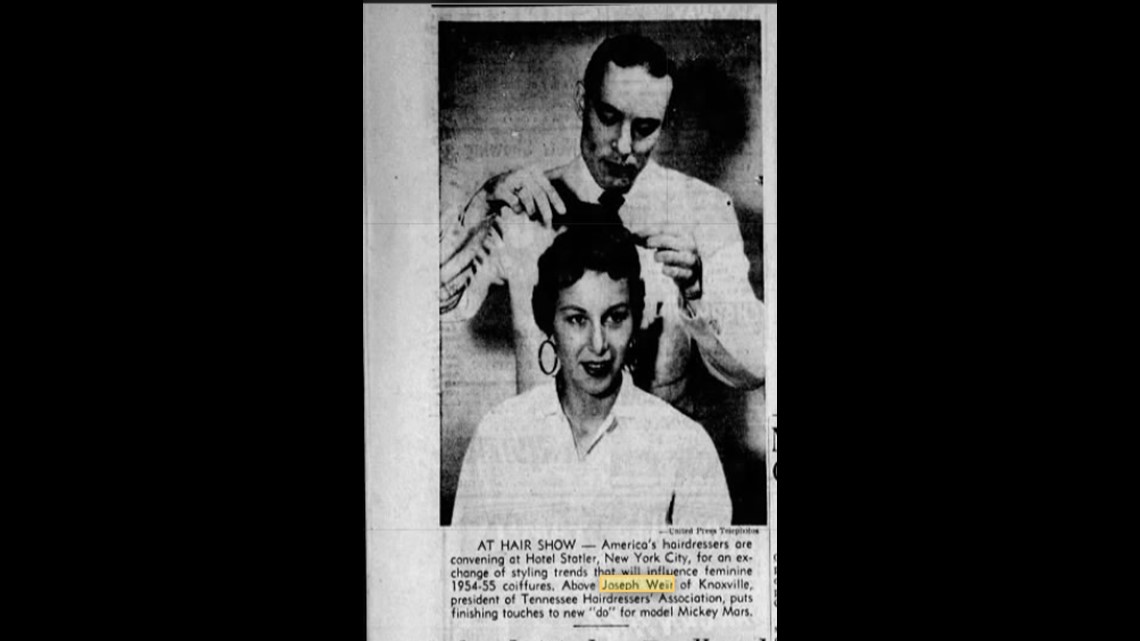
If it happened today, the homicide surely would be much easier to crack. Developments in forensics, including DNA technology, and the increased presence of security equipment like cameras make it a lot easier to catch a killer.
But unless nagging guilt or a slip of the tongue gives someone away, the nearly 40-year-old case may never be solved. It's even possible that one or more of the killers is dead himself.
The Knox County Sheriff's Office has had the case from the start. Today, Michael MacLean works it while directing the department's cold case homicide unit.
"I believe it fits the profile that this is somebody who came in with the intent of robbing him and they were going to assault him to whatever level they needed to get what they wanted," said MacLean, a former FBI agent and former commander of the Major Crimes Unit. "This one -- it definitely got out of hand. It would definitely indicate that he fought, otherwise there would be no reason to continue to stab him."
The few clues left behind point to a man or men who saw Weir's private life as an opportunity for robbery, at any cost. He was a well-to-do gay man who sometimes picked up young men he met while cruising, authorities said. That fact, no doubt, was known among some on the street, investigators think.
Whoever it was, Weir knew them well enough to let them in the house, said Richard Cameron, the owner of Club XYZ who as a young man in the early 1980s befriended Weir.

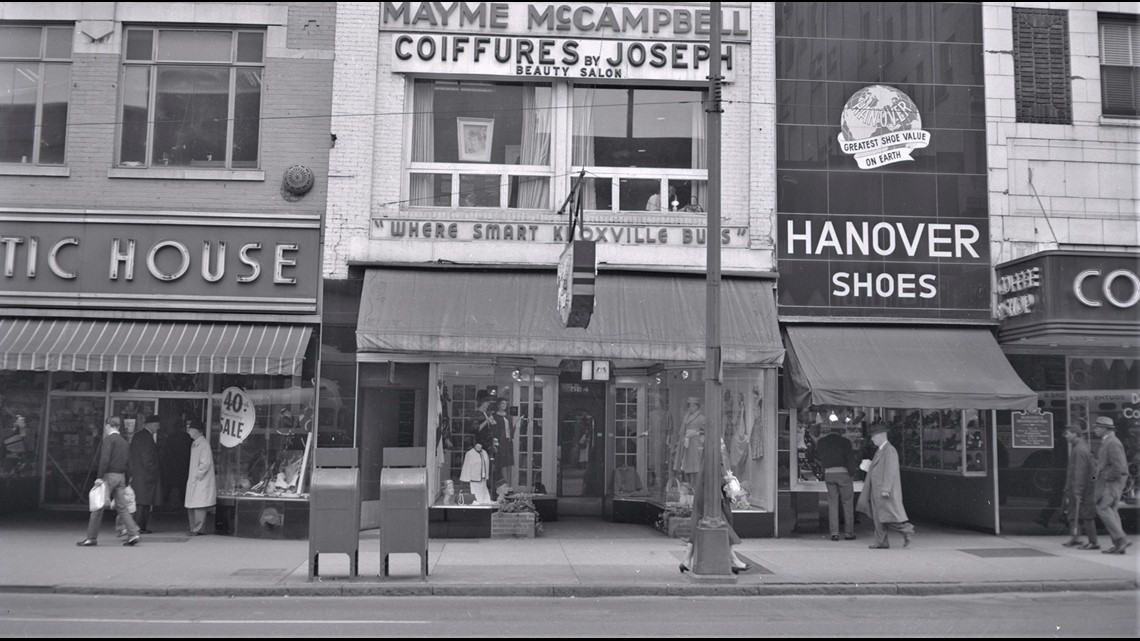
YOU, TOO, CAN HAVE THIS HAIRSTYLE
Fashion in the 1950s.
Think Grace Kelly, Marilyn Monroe and Elizabeth Taylor. Think sheath dresses, tailored suits, swing coats, gloves and pearls.
Women wore their hair in a poodle cut, Italian cut, soft bob and bouffant. Mr. Joseph knew them all.
From the 1950s and continuing well into the 1970s, Weir made his mark in women's coiffures in Knoxville. He knew what made a woman look good.
From his 30s into his 50s, Weir operated a number of salons he called "Coiffeurs by Joseph" in the Knoxville area. One shop sat on Gay Street between the Athletic House and Hanover Shoes. Another was in a Bearden shopping center on Kingston Pike, not far from Northshore Drive.
Weir understood publicity. For a time in the 1950s, he gave beauty tips every Monday at 9:45 a.m. on a Knoxville television station. Regular newspaper items on the Women's Page of the Knoxville Journal declared, "You, too, can have this hairstyle" while touting the merits of Joseph's hair salon.
He opened his own beauty school, Joseph's School of Hair Design.
He also got involved in state and national professional associations, becoming president of the National Hairdressers and Cosmetologists Association. He attended and competed in hairstyling exhibitions and championships in New York, Las Vegas, Paris and Amsterdam.

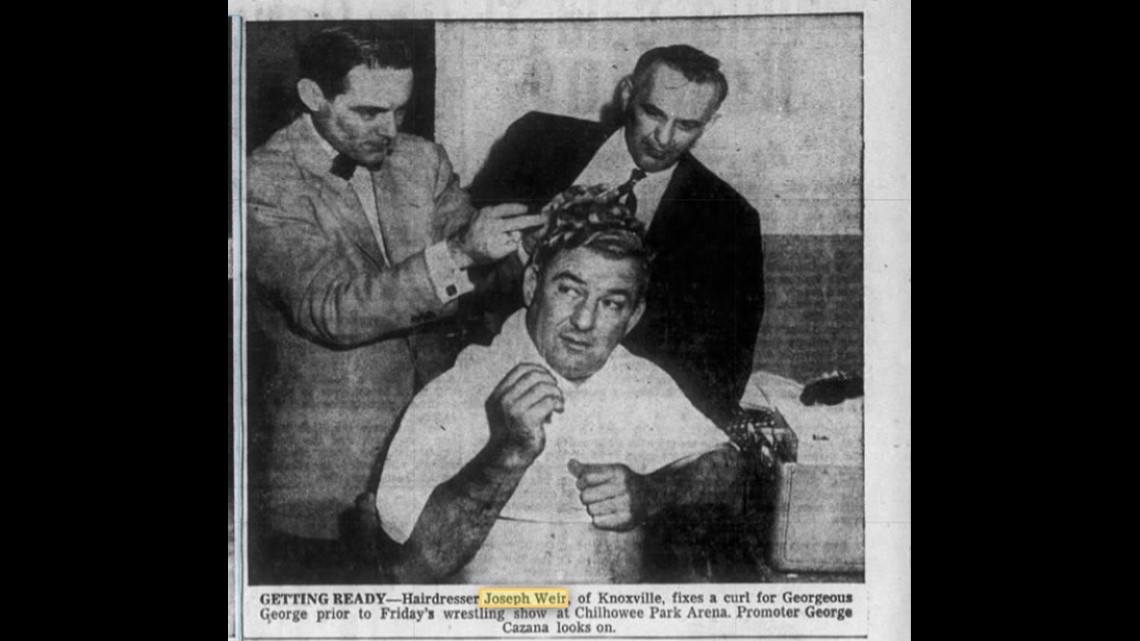
Style wasn't his only interest. He appreciated politics. He was part of a group of hairstylists who showed their support for the re-election of President Richard Nixon in 1972, as the News Sentinel would one day note.
At Weir's invitation in July 1973, Republican Tennessee Sen. Howard Baker addressed the National Hairdressers and Cosmetologists Association's gathering in Washington. As The New York Times noted that day, Baker appeared smack in the middle of the Watergate congressional investigations -- and the senator couldn't help but mention Watergate as he addressed the hundreds of hairdressers.
By the late 1970s, however, Weir was ready to retire.
He got into the club business, investing in the Carousel in Fort Sanders and then a club called the Europa in the basement of a bookstore on Main Avenue off Gay Street downtown, friends said. The building later was torn down to make way for the green glass office tower erected by financier C.H. Butcher Jr.
Weir greeted patrons at the door as they entered, recalled Cameron, who met Weir in the early 80s and went on to operate Club XYZ in Happy Holler.

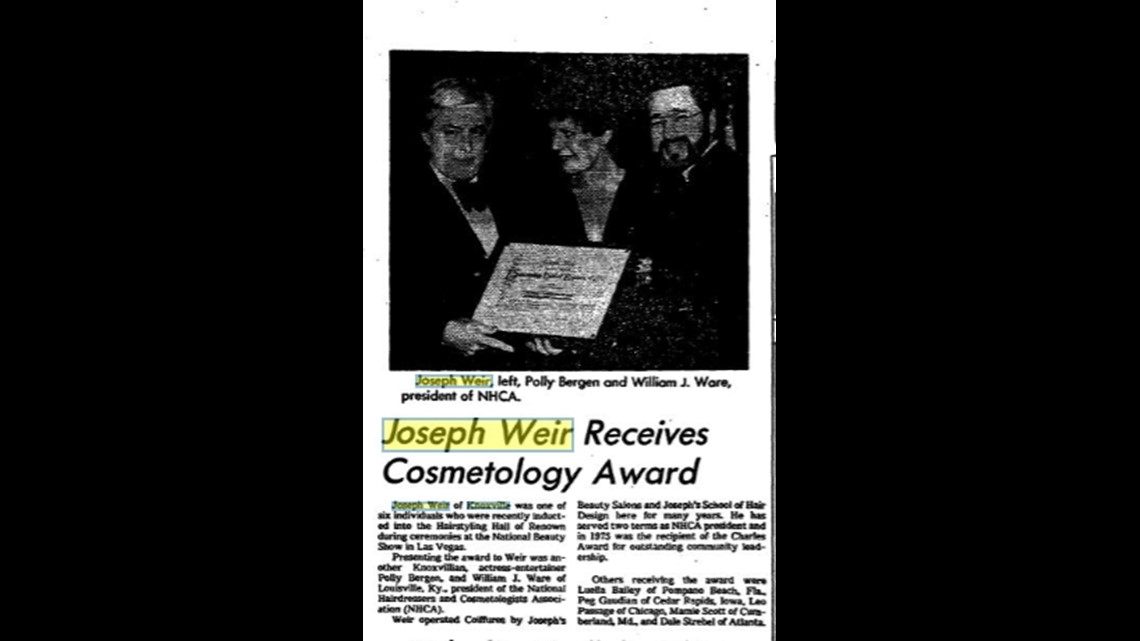
Weir was a generous, supportive, respected businessman, said Cameron, who was about 20 when he met Weir.
He recalled driving with him once to Nashville and back for a beauty event. He also remembers Weir's home on a hill south of West Town Mall.
Inside, he recalls paneled rooms, crushed velvet sofas and a crushed velvet swivel armchair, tall lamps with deep lamp shades.
"Joseph was a man with good taste," Cameron said. "He could do what he wanted to do and have what he wanted to have."
He was not the kind of person you'd think would end up murdered at his own home.
FIGHT TO THE DEATH
Weir returned to his home on Twining Drive not far from the now-defunct Deane Hill Country Club after spending the 1983 Thanksgiving holiday with family, according to investigators.
On the night of Nov. 28, 1983, Davenport suspects, that one or more people likely caught a ride to Weir's house.

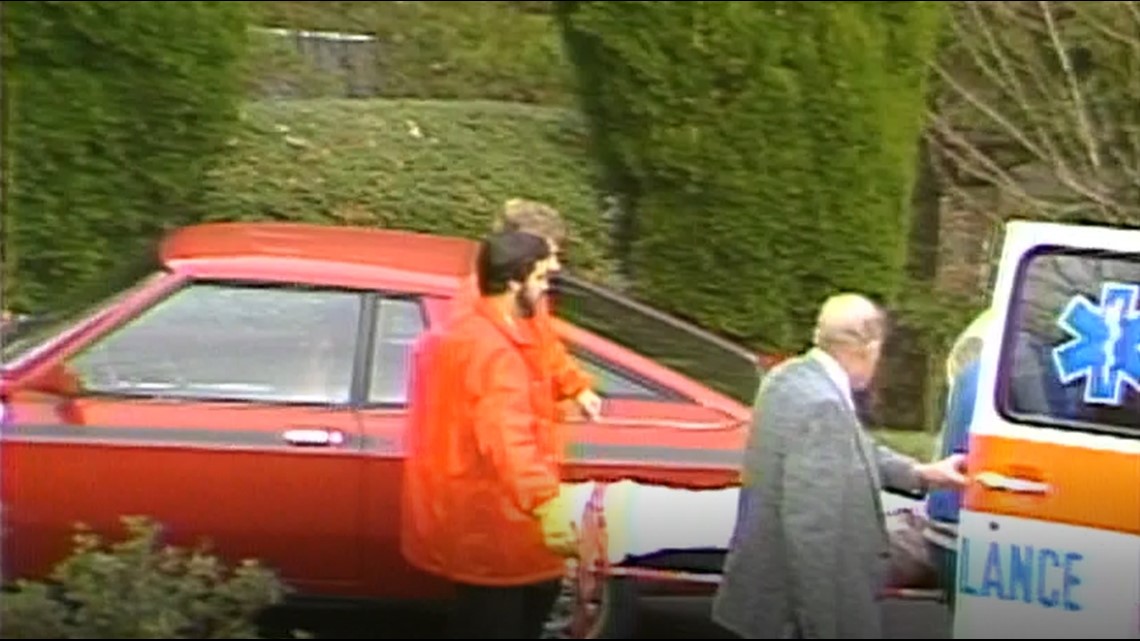
He may have known at least one of the visitors. Weir knew many, many people in the gay and straight community. Among those were young hustlers he'd met while occasionally cruising downtown streets in his Cadillac, according to investigators.
The people who showed up this time, however, weren't there for sex. Evidence indicated they wanted Weir's money.
MacLean said generally the house appeared undisturbed. There was no sign of forced entry, he said. Weir had an alarm system, modern for its day, in the house.
But investigators would find evidence of blood upstairs, indicating the stabbing started there and continued down the stairs to the lower level.
Defensive wounds on Weir's hands showed he'd tried to fight back. One thrust of the blade hit Weir's skull, MacLean said.
The victim ended up outside, his wounds so bad that he bled to death.
Willie Sims, a man in his 30s who looked after the house and sometimes stayed there with Weir's permission, found Weir's body the next morning when he stopped by. He'd tried the night before without luck to reach the homeowner.
When he spotted Weir's leg sticking out from under the tree branches out back, Sims backed off and waited for the cops to come.
"I walked outside to look around and as I walked outside I looked down in the woods and I saw his legs sticking out from under the bush," Sims told WBIR. "So I came back in and I immediately called the police."

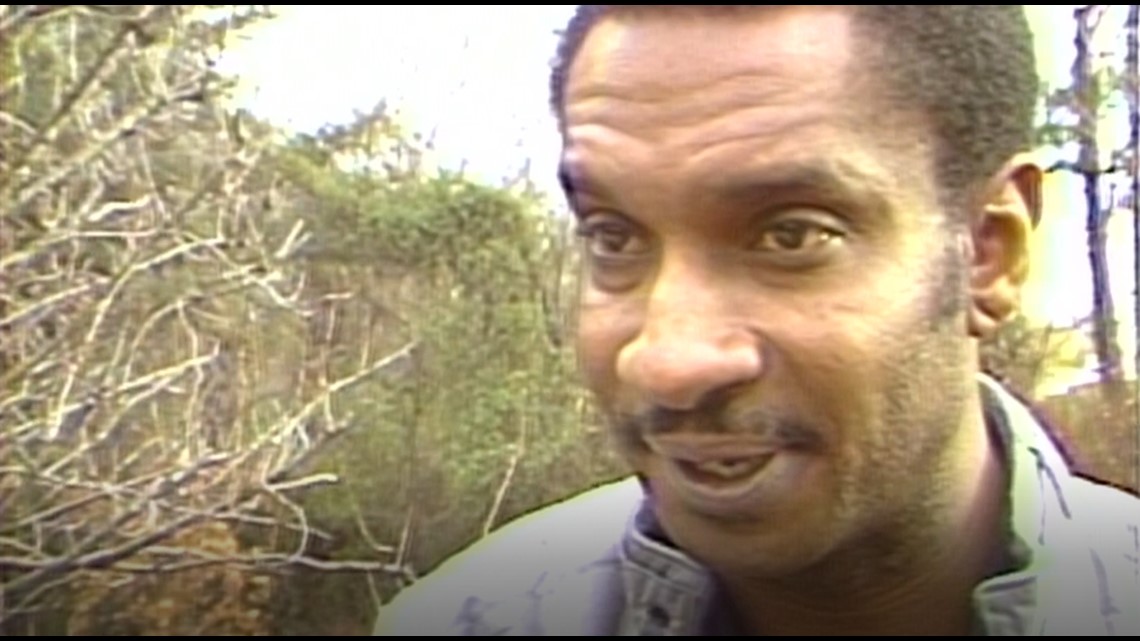
Although Weir was known to own nice things, detectives determined the only things missing from the home were his wallet and some blank checks.
Missing from the carport was Weir's Cadillac Eldorado. It would turn up later in Winston-Salem, N.C., abandoned and burned.
Detectives interviewed Sims but ruled him out as a suspect. Channel 10 hasn't been able to locate him subsequently, although he's believed to live in the area and is now in his 70s.
Today the Weir homicide is one of many cold cases KCSO keeps on the books.
Davenport, a former Jefferson County sheriff and former TBI agent, worked it for awhile at KCSO. After he left, MacLean took it over.
Davenport said he weighed and then dismissed the possibility that Weir might have been killed over differences with a business partner, now dead.
"After I reviewed it, I think it was actually that they (the killers) had went to roll him, rob him, and he put up resistance --- more than they thought he would. And they ended up killing him. There were some theories that he was involved in some organized crime, some drugs. That didn't pan out, and that wasn't Joseph's thing."
Davenport thinks Weir likely was targeted by young men who knew he was gay and thought they could get money from him. Some young suspects with ties to a West Knoxville housing development had committed a similar killing for which one of them is now serving a prison sentence, he said.
Somebody came in at one point and told investigators "who did it," Davenport said he would later learn. There was even talk of a juvenile who drove the killers to Twining Drive that night.
"It all fit," the veteran lawman said.

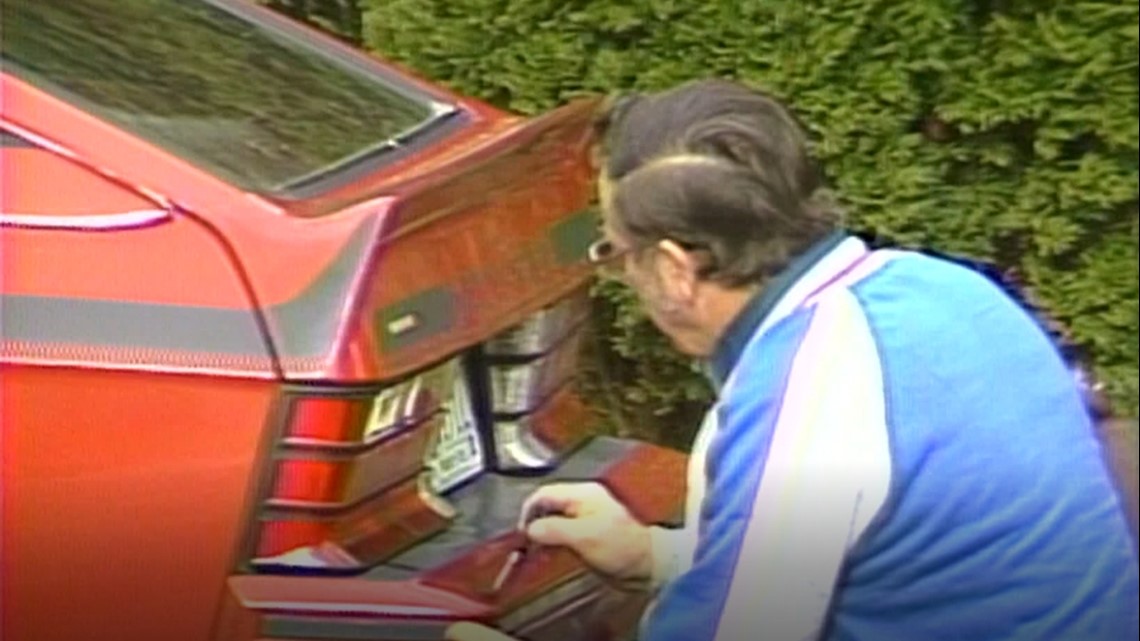
Whatever the tip, however, investigators apparently didn't think they had enough to charge anyone. The murder weapon never was found, MacLean said.
Key evidence such as Weir's clothes were not retained. The Cadillac, which might have yielded clues, is long gone with no evidence kept that might help investigators in the 2020s.
It appears the car was prematurely released to the insurance company, MacLean said.
He said investigators can assume the person who left it in Winston-Salem knew the area and was comfortable leaving it there. But the KCSO can't say definitively that whoever left it there is the same person who drove it away from Weir's house.
"It was not a good area of town that the car was left in," MacLean said.
Forty years ago, police didn't have the forensic tools they wield today, things like testing to identify the DNA of a victim as well as a suspect. Investigative staffing also was limited back then, Davenport said.
"Today, it's very solvable. Back in 1983, there was a limit on what you could do and what you were capable of. Given the evidence they were given, they did everything they could," MacLean said.


It's a jigsaw puzzle with some pieces still missing, Davenport said.
Weir's killing nags at Cameron. It's not right. That's why he said he was willing to be interviewed.
"I can't imagine him being one person to do anything to make anybody mad to want to hurt him. That's what really gets me the most about this right now. Now that I'm rethinking it over again, after all these years. This man deserves justice. You know, we need to know," he said.
"I just wanted to make sure, you know, that this doesn't get swept away or forgotten, you know, because Joseph deserves it. We deserve it, those of us who want to remember him."

